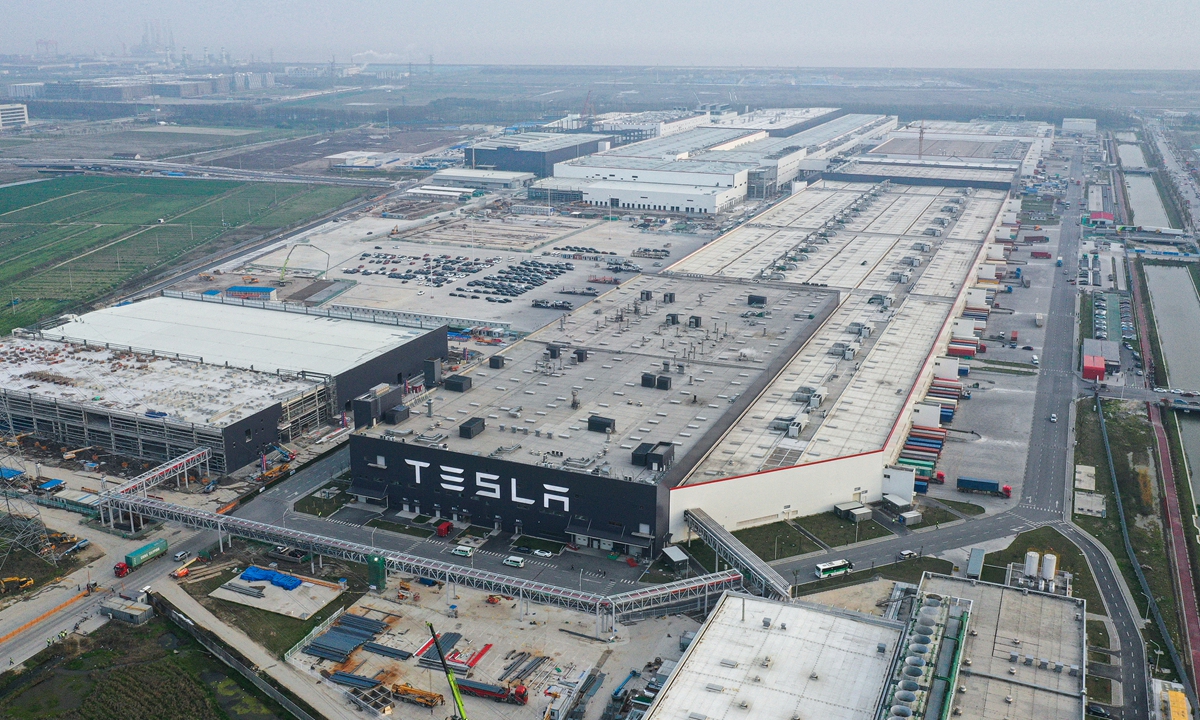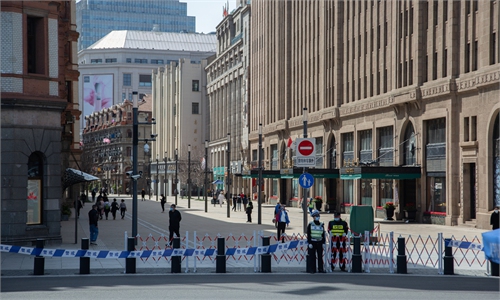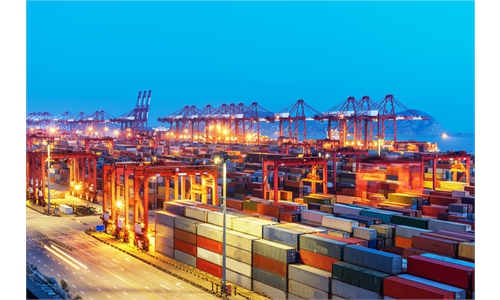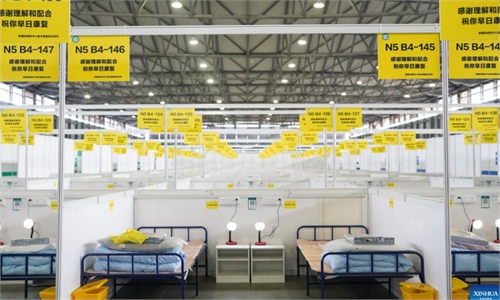Shanghai-based auto companies under closed-loop management to deal with virus flare-up
Shanghai-based plants under closed-loop management

Tesla's Gigafactory in Shanghai Photo:VCG
Car companies in Shanghai are gearing up to deal with the latest flare-up of the Omicron variant, while try to restrict the impact of a lockdown, with contingency plans such as closed-loop management of a company campus.
While the epidemic situation remains critical as Shanghai adapts city-wide "static management" to curb the outbreak, industry insiders believe the impact is likely to be substantive, especially for the electric vehicle (EV) sector, in which Shanghai has played an increasingly important role in the world, highlighted by Tesla's Gigafactory.
Some local car companies have now halted or reduced production, which risks the cut-off of the supply chain, Cui Dongshu, secretary general of the China Passenger Car Association (CPCA), told the Global Times on Thursday.
As China's largest automobile import and export hub, Shanghai accounts for about 70 percent of the country's automobile foreign trade, according to Cui, indicating a potentially big impact from the epidemic.
Tesla cancelled plans to resume production at its Shanghai factory on Friday and Saturday, further delaying reopening of the production hub for the company's Model 3 and Model Y vehicles, Reuters reported on Thursday, citing an internal notice.
A previous report claimed that the plant's production was suspended for four days from March 28 to comply with the rules to control the virus.
While Tesla did not clarify the reported suspension when reached by the Global Times on Thursday, the company reiterated that it has always adhered to the main responsibility of epidemic prevention, and arranged work at any time in accordance with the government's epidemic prevention policies.
"We believe that Shanghai's speed and strength, and today's fight against the epidemic, are laying the foundation for a faster recovery," the company said.
In 2021, the Shanghai Gigafactory delivered 484,130 vehicles, accounting for 51.7 percent of Tesla's 936,000 global deliveries, previous data from the CPCA showed.
But experts said that the impact on exports could be limited since trade flows remain resilient, while there could be challenges for distribution from Shanghai to other Chinese cities due to the strict epidemic control needs.
Shanghai is now at the most difficult stage of the epidemic battle, and every minute and every hour counts, Li Qiang, Shanghai's Party secretary, announced in a video meeting on Wednesday, while announcing plans to resort to "static management" and city-wide nucleic acid testing.
A supplier of a large Shanghai-based international car company told the Global Times on condition of anonymity that they were told to immediately deliver all the spot goods to clients or send them outside Shanghai before the city's two-phase lockdown starting on March 28. Raw materials for production were also transported to the plant at the earliest opportunity, the person said.
During closed-loop management, staffers were told to stay in the factory to ensure smooth operation, the insider said.
Other locally based vehicle companies are also dealing with the potential disruptions from the sudden coronavirus outbreak.
On Tuesday, IM Motors, a joint venture between Chinese automobile manufacturer SAIC Motor and companies including Alibaba Group, held an online press conference during which the company's co-CEO Liu Tao said that he had just come out of a closed community, according to Chinese financial media outlet Caixin.
IM Motors is an independent luxury car brand built by SAIC Motor to benchmark Tesla. The first mass-produced car, the L7, was originally planned to be delivered in April.
But due to the impact of the epidemic on the production and logistics, the L7 test drive is expected to be delayed for two weeks before it can reach stores across the country, and the test drive needs to be postponed from March to mid-early April, according to Liu.
The epidemic impact on car manufacturing is certain and foreseeable, given the fact that the employees are under closed-loop management and the logistics system is not in a smooth condition since epidemic control measures may be different from place to place, Xu Haidong, assistant secretary general of the China Association of Automobile Manufacturers, told the Global Times on Thursday.
"But we believe the impact is temporary and the production capacity can recover in April if the epidemic can be controlled, and the local car industry is capable of making up for the losses," Xu said.



